Uruguay
In mid-July, I traveled to Uruguay with my father and some friends from Chestertown. We headed to the "Switzerland of South America" to enjoy the excellent bird shooting found there. Our targets were pigeons and perdiz.
Pigeons in South America are a homogenous breed. There are no mixed and multicolored varieties like you find in the States. Basically, they resemble a big dove:
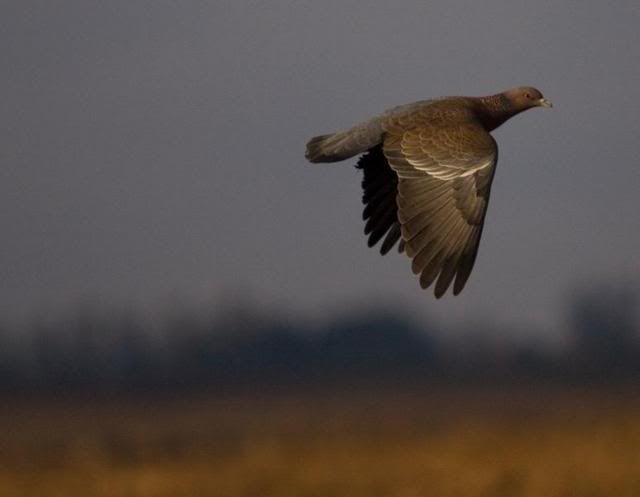
Our guides would set up blinds for us in grain fields where the birds were feeding. The blinds were burlap wrapped around stakes, as seen here with Bill Bowdle:
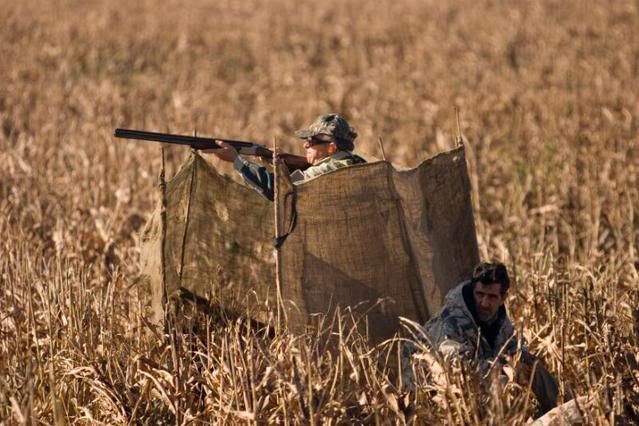
And my father looking for birds from his, with his bird boy helping:
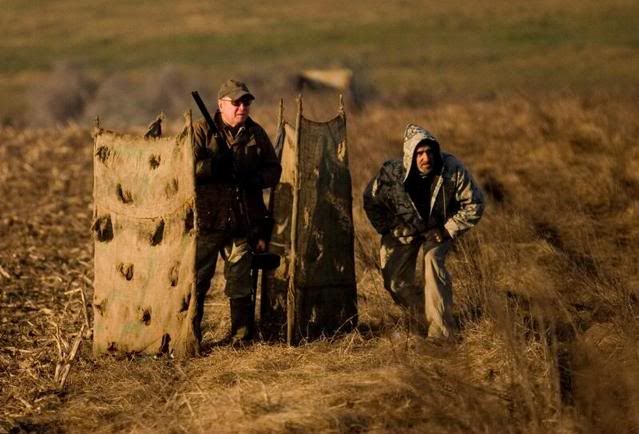
We would hunt large farms, often over 5000 acres that were mixed use, both grain and livestock:
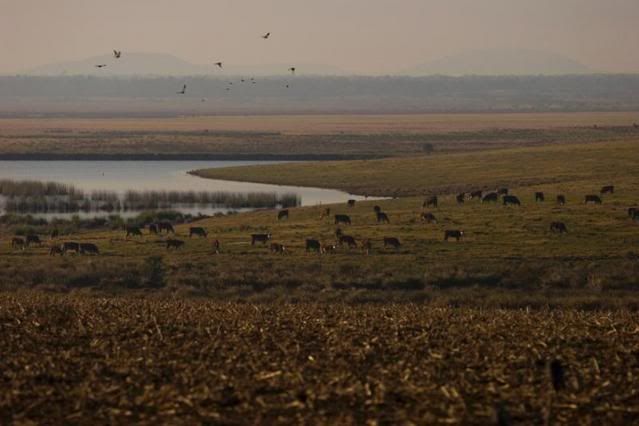
Often, we would be shooting right overtop herds of cattle. Here Joseph poses in front of a few cows:
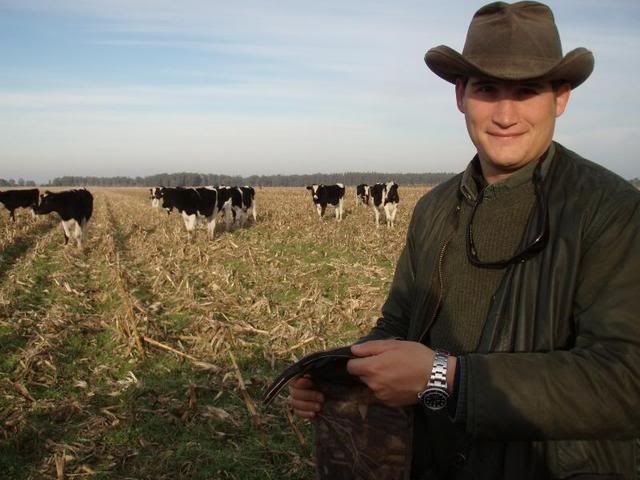
My father gets a visit:
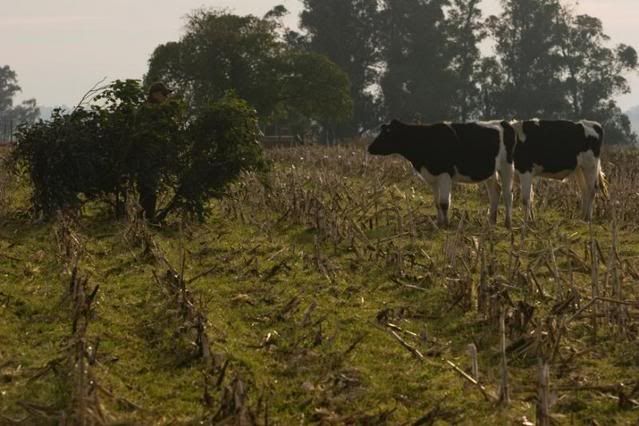
Pigeons will toll like ducks to decoys. At most locations, the centerpiece of our decoy spread was a mechanical "fan" that took 4 dead pigeons with their wings spread and made it circle our spread:
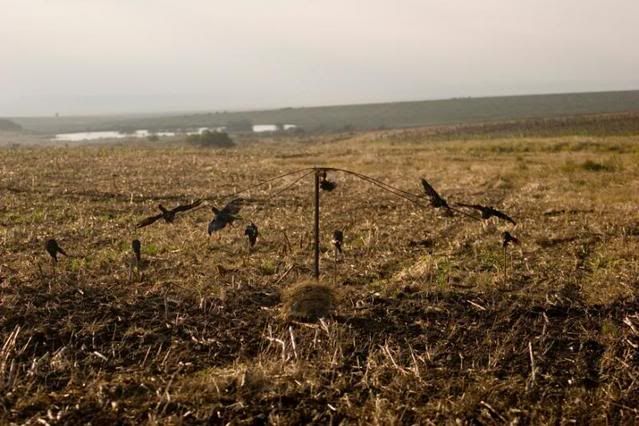
Decoy spreads would contain a few plastic decoys, then the rest of the decoys would be made up of birds as we shot them. Our bird boys would mount the carcasses on stalks of corn, milo, or even fence posts:
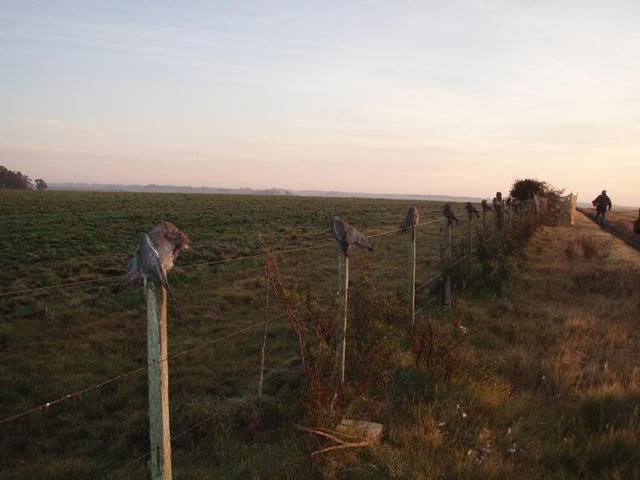
These crude decoys worked well:
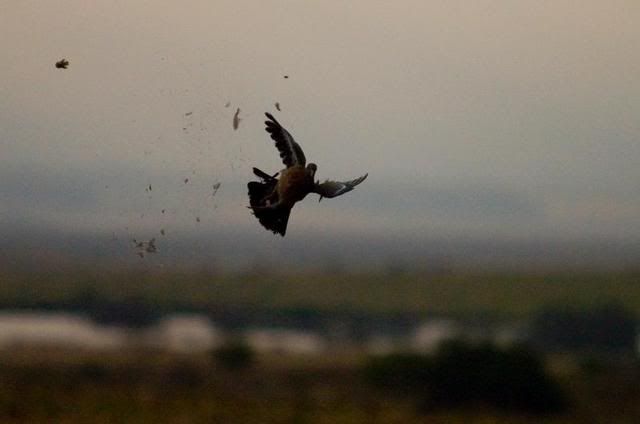
While pigeon shooting, we also had chances to shoot at ducks. These pictured are called Brazilian teal, or Patos Picasos in some regions:
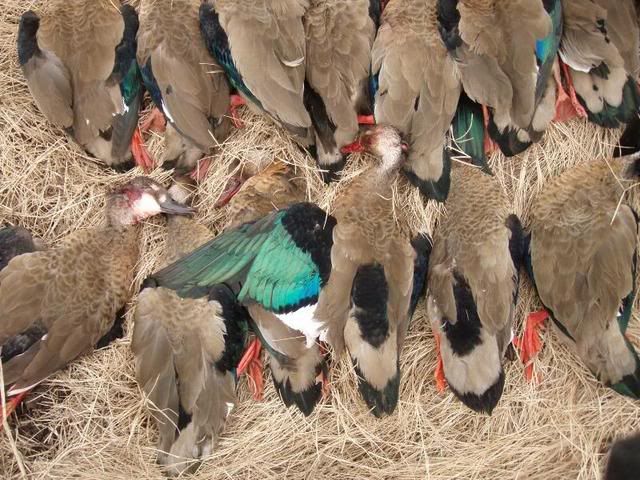
Dad and I posing with a bag of about 20 ducks taken during a pigeon shoot:
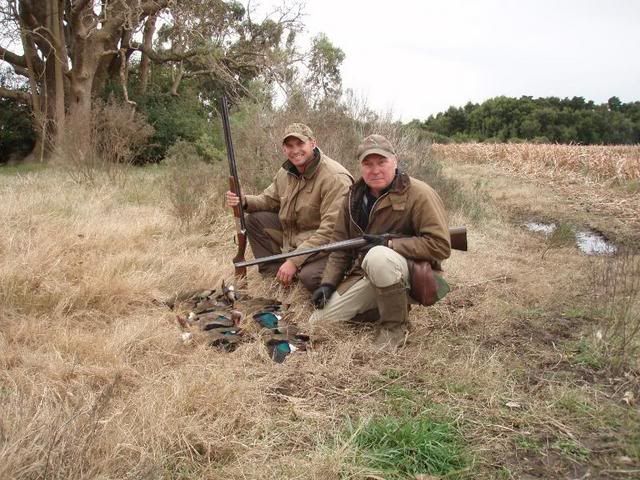
We would also see wild parakeets flying around:
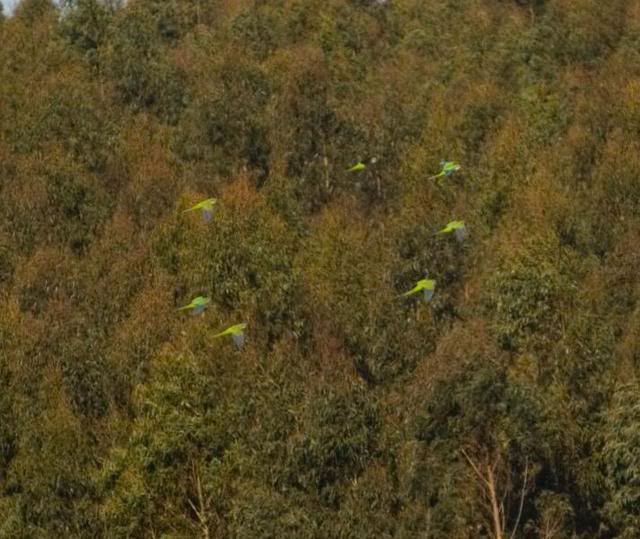
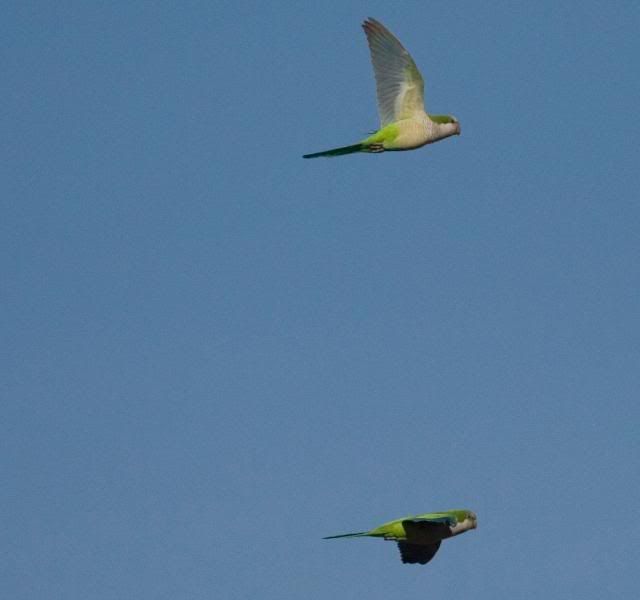
Because of crop damage, we were told we could shoot them as well:
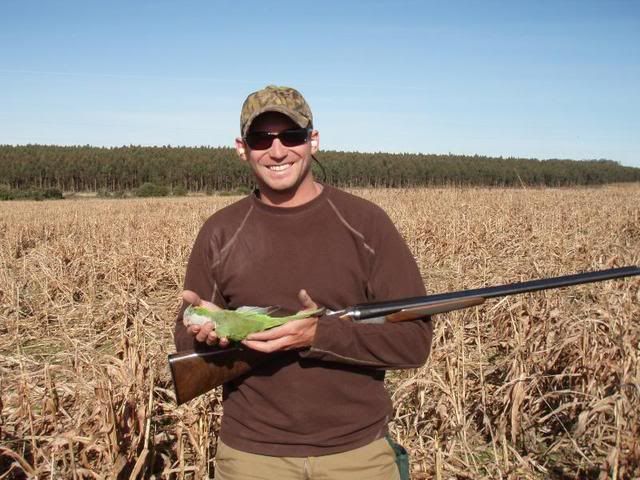
I only shot a few parakeets because the guides would just leave them lay. We ate the ducks, and the pigeons were collected and given to farmers for pig feed.
We stayed in two different lodges, the first was on the coast in a city called Playa Del Este. Here is the view from our lodge:
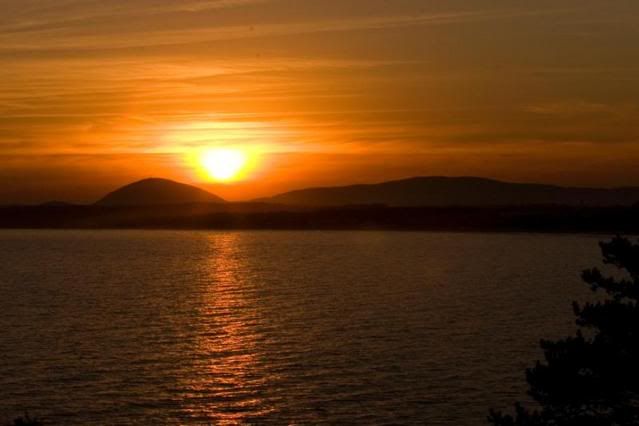
Our lodge was part of a huge condo complex, here is the complex:
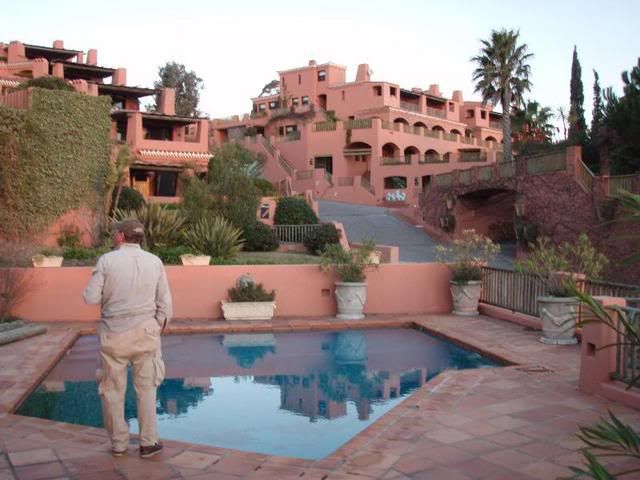
The second bird we targeted in Uruguay were perdiz. These birds are similiar to quail, except the prefer areas with less cover. We hunted them in large fields that were for cattle or horse grazing:
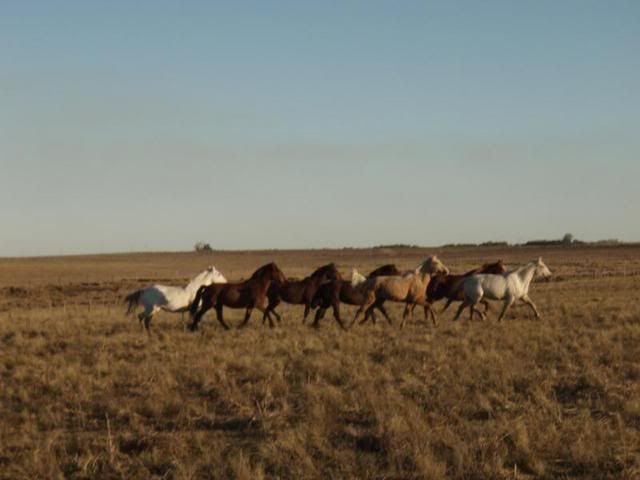
As shown in the above picture, the cover that hide perdiz is sparse, however they were almost invisible, and we would not see them until dogs jumped them for us. Unfortuately, I enjoyed perdiz shooting to much to trade my shotgun for my camere, so I did not take many pictures, but here are a few.
My father and I with a few we shot:
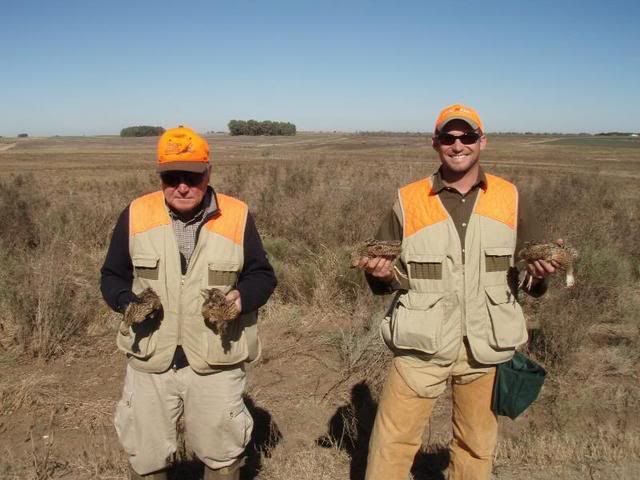
Other animals used the same cover:
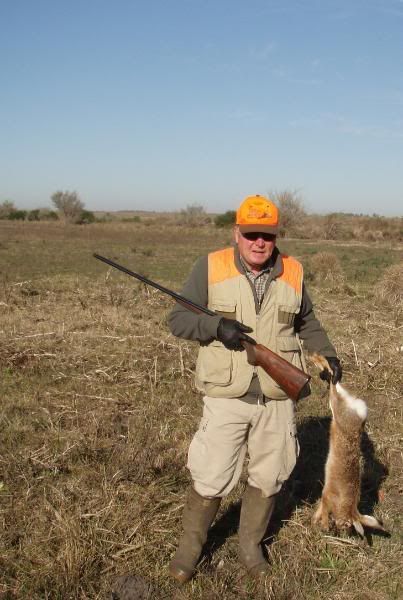
The perdiz shooting was awesome, it was not unlikely to kill over 30 birds in a morning hunt. Here is a group photo after a good perdiz shoot:
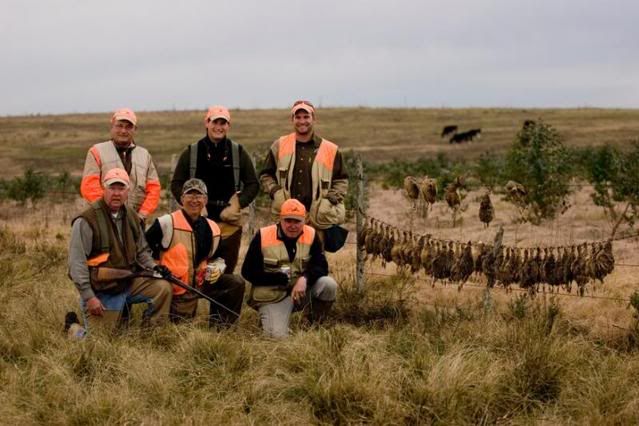
we ate a lot of perdiz...
Our second lodge was part of an enormous estancia owned by Germans. According to our guides, they owned approximately 40,000 acres of land. The lodge was pretty impressive. It was an old mansion:
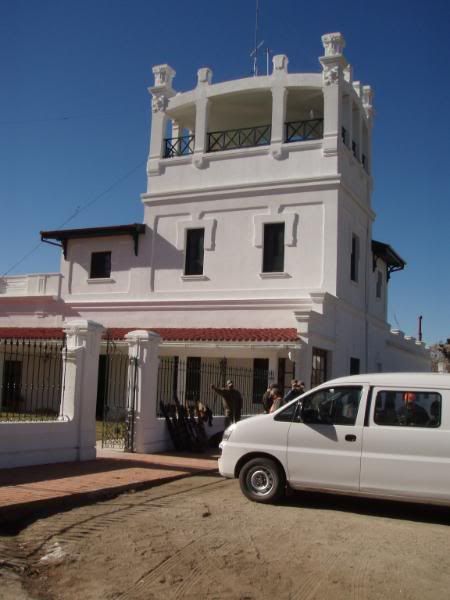
It even had its own church:
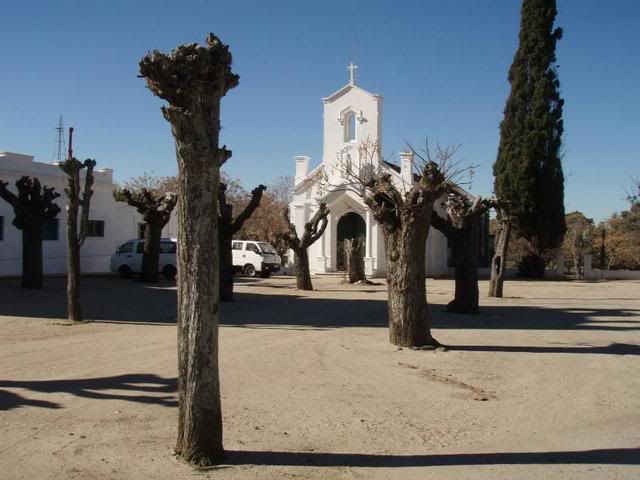
This trip was awesome. Uruguay is a bird shooters paradise. On pigeons, a case of shells (2500 rounds) per hunt was the norm. The perdiz shooting was unbelievable, and we also had ducks. I can't say enough about the shooting. We were treated well also. Here Rumina opens one of many bottles of wine for us:
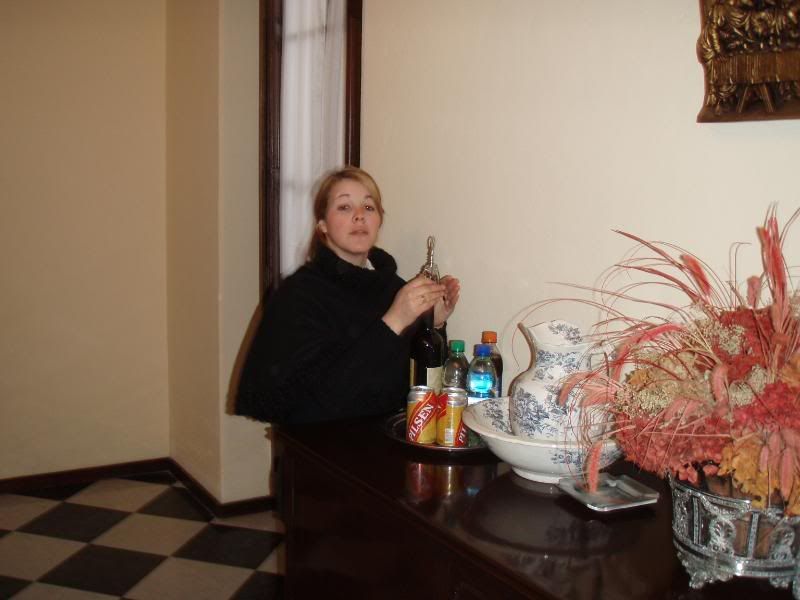
The local wine is excellent, and the food amazing as well. At the second lodge, we were treated to grilled steaks. Their grills are a little different:
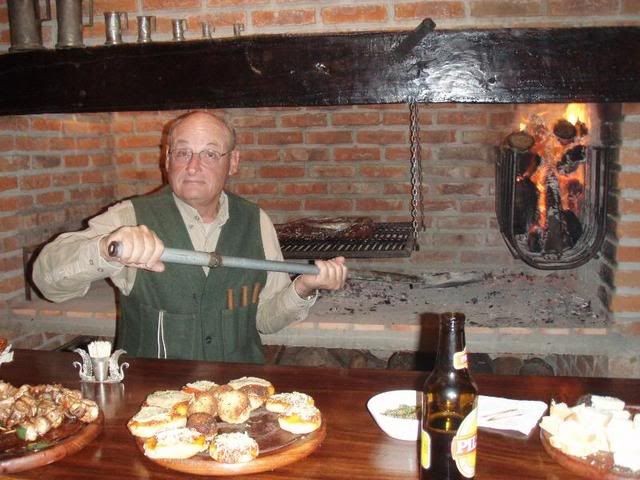
Though Dr. Aquila is blocking the grill, it stretched 4 feet long and hung from the top of the chimney, suspended over the coals. The coals were gathered from the wood burning in the right hand corner of the above picture. As embers fell off the logs, they were scraped under the grill. I would love to have one of these in my house.
Dinners were always great:
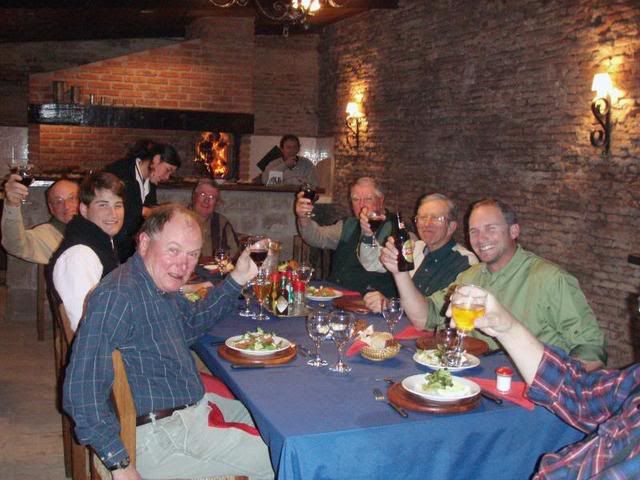
Here are a few other shots from the trip...
Joseph and Mr. Mercer, enjoying drinks
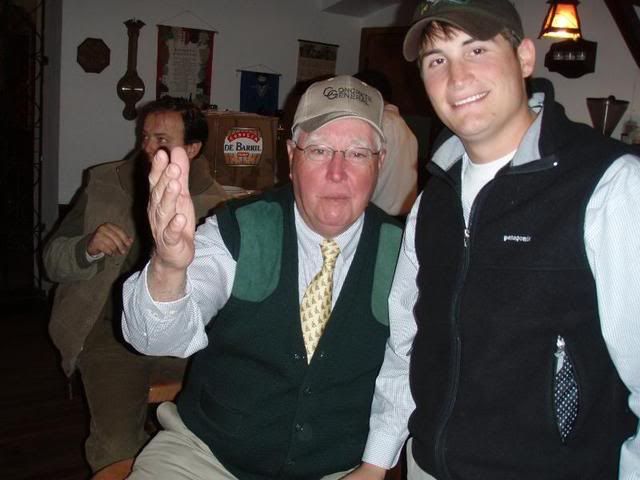
Mr. Mercer telling George, our guide, how its done:
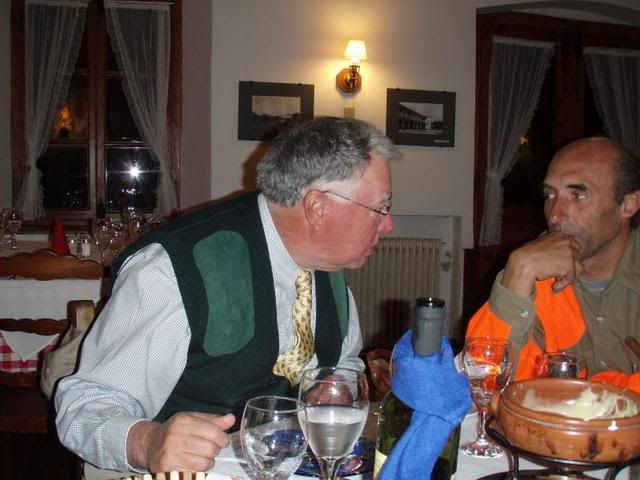
Mr. Mercer, after George implemented his suggestions:
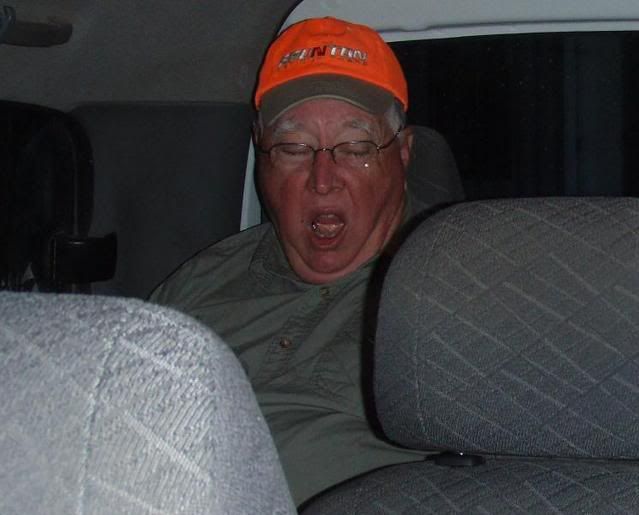
Joseph and I decided to hang out and party with the serving staff at our second lodge:
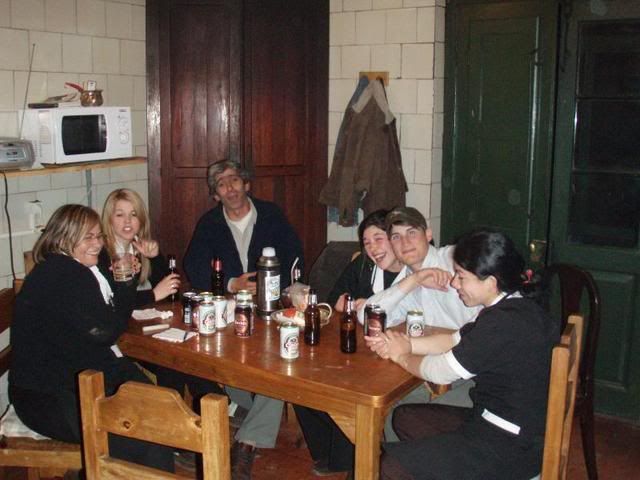
Sunrise over the hills of Uruguay:
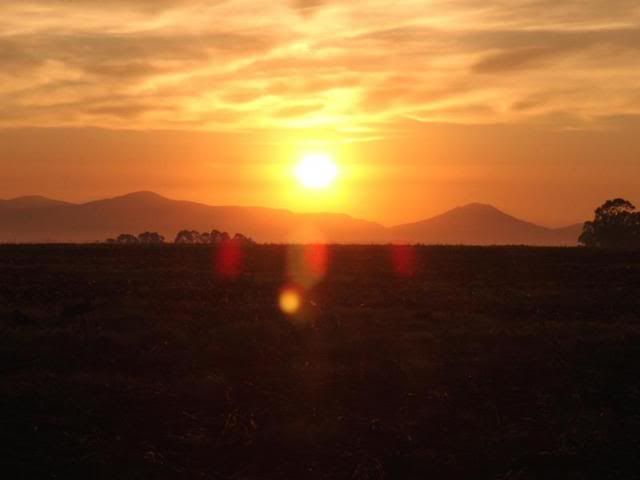
They have wild Emu's in Uruguay, they call them Reis:
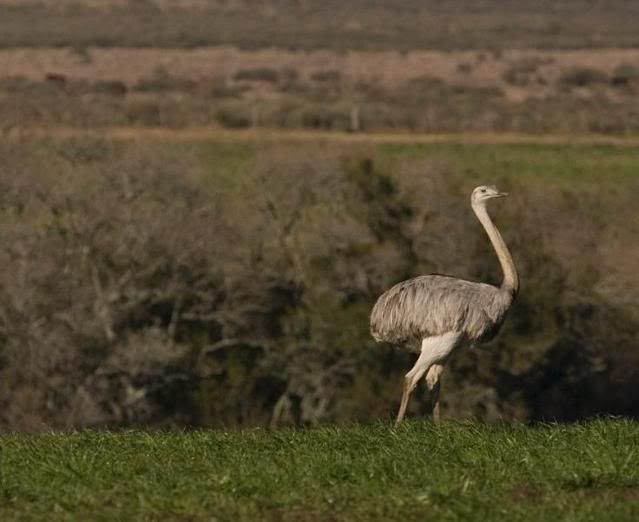
A few other birds:
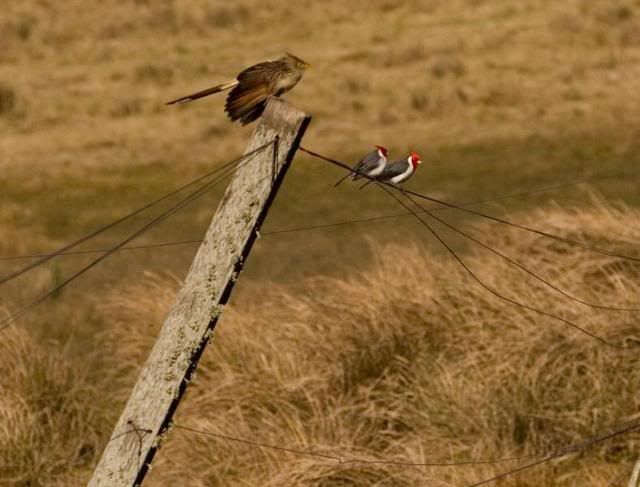
A bird nest, these were on posts and telephone poles everywhere:
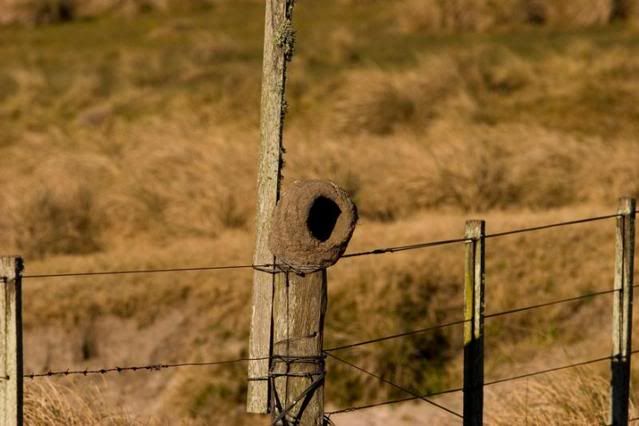
Modern farming:
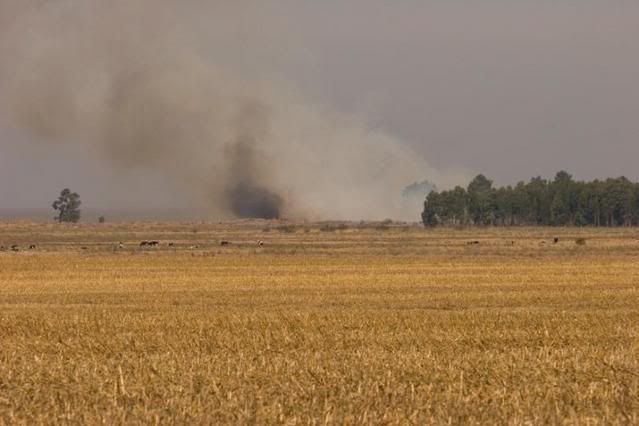
Pigeons in South America are a homogenous breed. There are no mixed and multicolored varieties like you find in the States. Basically, they resemble a big dove:

Our guides would set up blinds for us in grain fields where the birds were feeding. The blinds were burlap wrapped around stakes, as seen here with Bill Bowdle:

And my father looking for birds from his, with his bird boy helping:

We would hunt large farms, often over 5000 acres that were mixed use, both grain and livestock:

Often, we would be shooting right overtop herds of cattle. Here Joseph poses in front of a few cows:

My father gets a visit:

Pigeons will toll like ducks to decoys. At most locations, the centerpiece of our decoy spread was a mechanical "fan" that took 4 dead pigeons with their wings spread and made it circle our spread:

Decoy spreads would contain a few plastic decoys, then the rest of the decoys would be made up of birds as we shot them. Our bird boys would mount the carcasses on stalks of corn, milo, or even fence posts:

These crude decoys worked well:

While pigeon shooting, we also had chances to shoot at ducks. These pictured are called Brazilian teal, or Patos Picasos in some regions:

Dad and I posing with a bag of about 20 ducks taken during a pigeon shoot:

We would also see wild parakeets flying around:


Because of crop damage, we were told we could shoot them as well:

I only shot a few parakeets because the guides would just leave them lay. We ate the ducks, and the pigeons were collected and given to farmers for pig feed.
We stayed in two different lodges, the first was on the coast in a city called Playa Del Este. Here is the view from our lodge:

Our lodge was part of a huge condo complex, here is the complex:

The second bird we targeted in Uruguay were perdiz. These birds are similiar to quail, except the prefer areas with less cover. We hunted them in large fields that were for cattle or horse grazing:

As shown in the above picture, the cover that hide perdiz is sparse, however they were almost invisible, and we would not see them until dogs jumped them for us. Unfortuately, I enjoyed perdiz shooting to much to trade my shotgun for my camere, so I did not take many pictures, but here are a few.
My father and I with a few we shot:

Other animals used the same cover:

The perdiz shooting was awesome, it was not unlikely to kill over 30 birds in a morning hunt. Here is a group photo after a good perdiz shoot:

we ate a lot of perdiz...
Our second lodge was part of an enormous estancia owned by Germans. According to our guides, they owned approximately 40,000 acres of land. The lodge was pretty impressive. It was an old mansion:

It even had its own church:

This trip was awesome. Uruguay is a bird shooters paradise. On pigeons, a case of shells (2500 rounds) per hunt was the norm. The perdiz shooting was unbelievable, and we also had ducks. I can't say enough about the shooting. We were treated well also. Here Rumina opens one of many bottles of wine for us:

The local wine is excellent, and the food amazing as well. At the second lodge, we were treated to grilled steaks. Their grills are a little different:

Though Dr. Aquila is blocking the grill, it stretched 4 feet long and hung from the top of the chimney, suspended over the coals. The coals were gathered from the wood burning in the right hand corner of the above picture. As embers fell off the logs, they were scraped under the grill. I would love to have one of these in my house.
Dinners were always great:

Here are a few other shots from the trip...
Joseph and Mr. Mercer, enjoying drinks

Mr. Mercer telling George, our guide, how its done:

Mr. Mercer, after George implemented his suggestions:

Joseph and I decided to hang out and party with the serving staff at our second lodge:

Sunrise over the hills of Uruguay:

They have wild Emu's in Uruguay, they call them Reis:

A few other birds:

A bird nest, these were on posts and telephone poles everywhere:

Modern farming:


0 Comments:
Post a Comment
<< Home